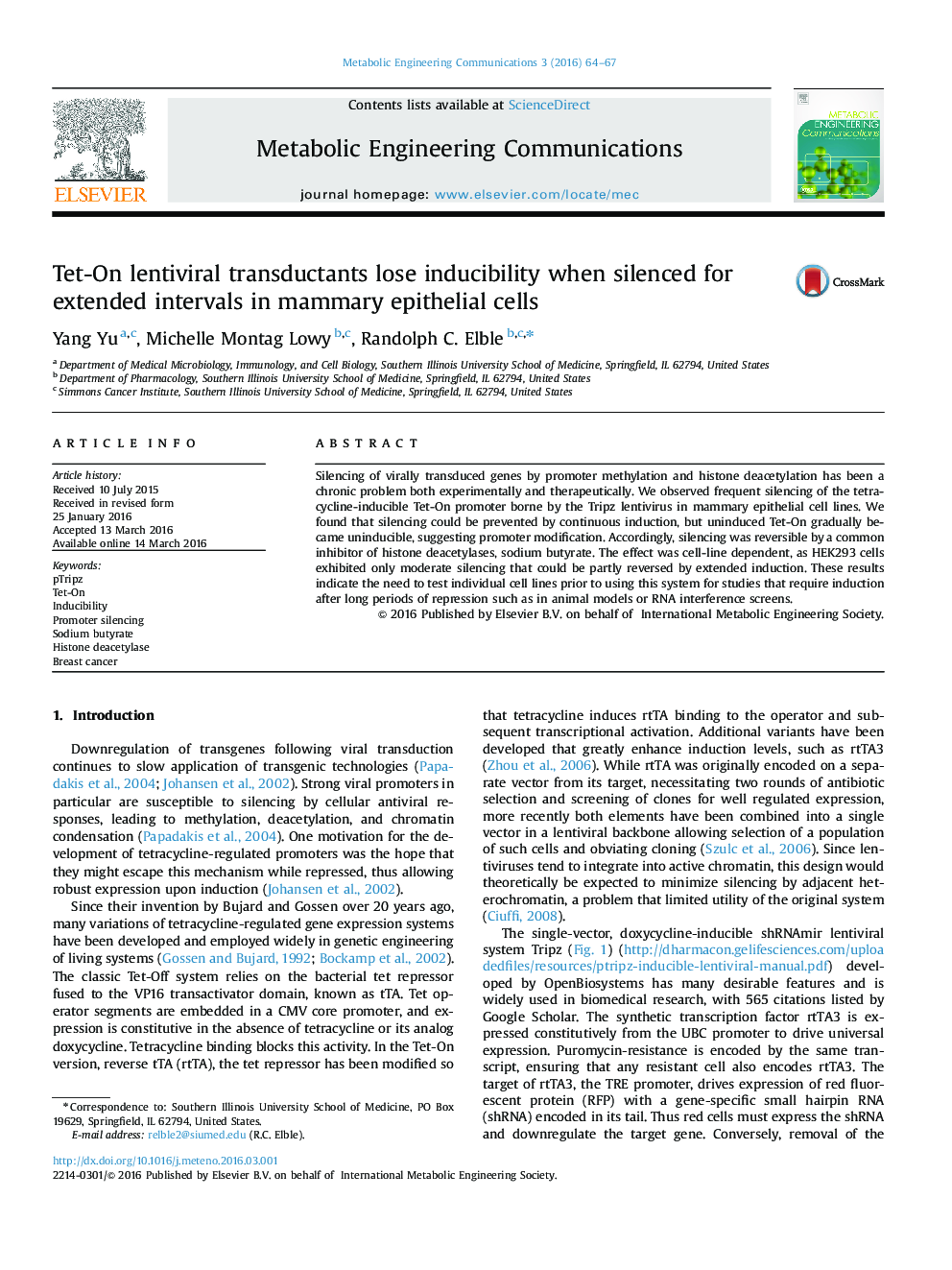| Article ID | Journal | Published Year | Pages | File Type |
|---|---|---|---|---|
| 571838 | Metabolic Engineering Communications | 2016 | 4 Pages |
•Loss of inducibility of Tet-On transgenes in cancer cell lines is reported.•Expression can be restored by an HDAC inhibitor.•Expression can be maintained by continuous induction.•Loss of expression is cell-line dependent.
Silencing of virally transduced genes by promoter methylation and histone deacetylation has been a chronic problem both experimentally and therapeutically. We observed frequent silencing of the tetracycline-inducible Tet-On promoter borne by the Tripz lentivirus in mammary epithelial cell lines. We found that silencing could be prevented by continuous induction, but uninduced Tet-On gradually became uninducible, suggesting promoter modification. Accordingly, silencing was reversible by a common inhibitor of histone deacetylases, sodium butyrate. The effect was cell-line dependent, as HEK293 cells exhibited only moderate silencing that could be partly reversed by extended induction. These results indicate the need to test individual cell lines prior to using this system for studies that require induction after long periods of repression such as in animal models or RNA interference screens.
